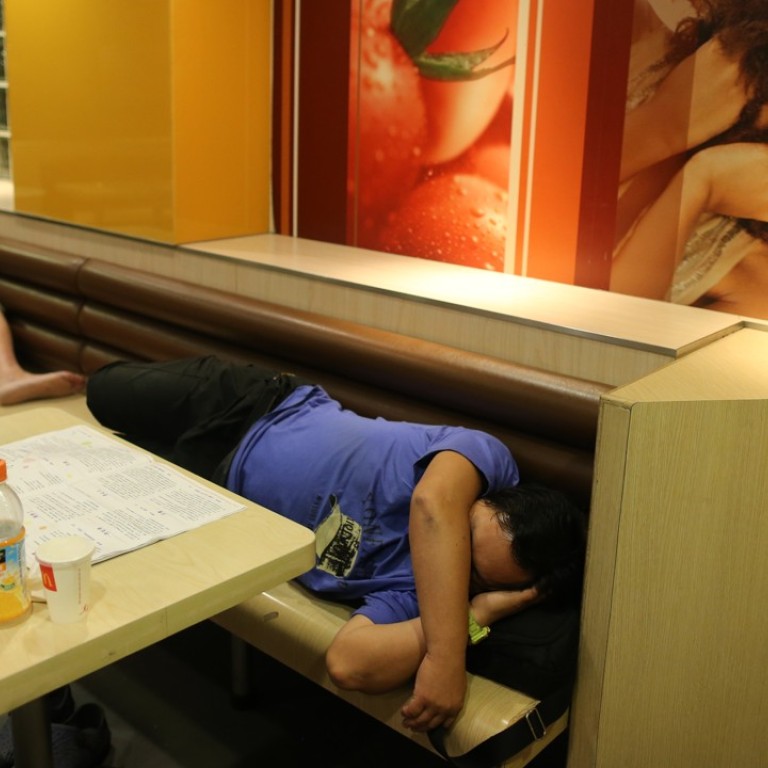
Helping McSleepers a good place to start
Homelessness, the fundamental driver of severe poverty, is a social problem reflecting complex issues. Hong Kong is not the only city to face it. But as an affluent community it can afford to do a lot more than most
An ageing, high-rent, low-wage society with a limited social safety net is a recipe for poverty. The latest measure of poverty is the McSleeper or McRefugee index. This is not to be compared with economic indices turned out by think tanks that Hong Kong tends to do well in, without the poor having benefited much so far. It is a simple headcount of homeless people sheltering overnight in 24 hour fast-food outlets. According to a recent study by the Society for Community Organisations, a welfare NGO, the number of McSleepers has increased by 50 per cent in three years, from 256 to 384, and more than 10 per cent were females.
This follows the release of official figures a few months ago showing that one in five Hongkongers, or about 1.35 million, now live below the poverty line, defined as having less than half the median family income according to household size. This number comes in under one million after taking into account the CSSA and old-age allowances. The study measures only income, not assets, but lawmakers and social workers insist it proves that the grass roots could not benefit from the city’s economic growth.
Defending the government’s efforts to combat poverty, Chief Secretary Matthew Cheung Kin-chung said ageing had nullified poverty alleviation measures, adding: “It is a huge challenge.” If the government is serious about making a difference in dealing with poverty and homelessness, McSleepers would be a good starting point.
After a street sleeper in her 50s to 60s was found dead at a table in a McDonald’s outlet after seeking refuge during the night, the public was understandably shocked by a shameful reminder that more needs to be done to help the homeless and the needy.
Cheung has expressed confidence the poverty rate among the elderly will improve next year when a number of new initiatives take effect. Measures being urged upon the administration include a universal pension scheme and annual reviews of the minimum wage – now HK$34.50 an hour – instead of every two years.
Homelessness, the fundamental driver of severe poverty, is a social problem reflecting complex issues. Hong Kong is not the only city to face it. But as an affluent community it can afford to do a lot more than most.

